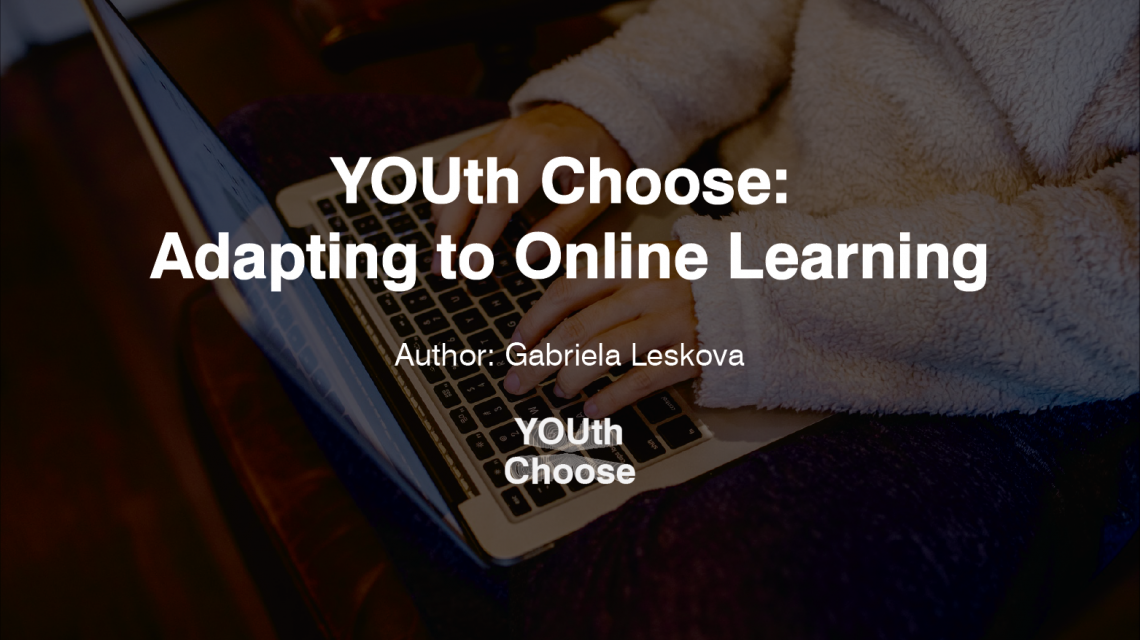The lecture halls and the desks of the faculties are empty, no students and professors in sight, for more than ten months. The COVID-19 pandemic has changed the way education is conducted – from physical attendance to online learning, and students and teachers have resorted to digital technology so as not to interrupt the learning process. But have they adapted to online classes and how well did their adaptation go?
Online classes in the eyes of students from the Western Balkans
We have spoken to several students from various Western Balkan faculties about how well they are handling the new study settings. Journalism student Branislava Kolarov from Serbia said that at the beginning of the pandemic, the professors did not conduct any online lectures, so it was difficult for her to organize her time and do her assignments. What bothered her the most was the lack of direct interaction with her colleagues where they share thoughts and opinions on the assignments. The biggest obstacle for her peer from Albania, journalism student Kiara Manja, was also adapting to the new platforms. She said that the professors initially experienced difficulties while using the digital communication tools, and that the students did not have the necessary equipment for online learning.
To listen to the youth perspectives of Branislava Koralov from Serbia and Kiara Manja from Albania, click the buttons below:
Conversation WITH BRANISLAVA KORALOV
Electrical engineering and information technologies student Dejan Dimitriev from North Macedonia said that his faculty, despite the great challenge posed before it, managed to find a suitable platform for the realization of online teaching. Tomas Zabo, who studies in Bosnia and Herzegovina, also said that his faculty was quick to adapt to a new digital platform, but that the biggest problem remains in the practical teaching and exams, as well as the absence of physical socializing with colleagues.
To listen to the youth perspectives of Dejan Dimitriev from North Macedonia and Tomas Zabo from Bosnia and Herzegovina, click the buttons below:
Conversation WITH DEJAN DIMITRIEV
The students we spoke to have similar views on the future of online learning in the places of the region where they live. They believe that online teaching cannot completely replace teaching via physical attendance, especially since some places still have poor internet connections and faculties and students do not have adequate technical equipment. However, they agree that online learning has encouraged them to become better acquainted with the possibilities offered by digital technology.
To listen to the youth perspectives on the topic, click the buttons below:
Conversation WITH BRANISLAVA KORALOV
Conversation WITH DEJAN DIMITRIEV
How have the teachers coped with online education?
We did not have time to prepare and develop systems to support online education. We were pushed into this situation and we had to deal with it, said Journalism Professor Dragana Prodanovic from the University of Novi Sad, Serbia. “In these circumstances, I think that we are just managing as we can and that is the only thing that we can do now. The students are deputing well to the best of their abilities. We have to take everything into consideration”, professor Prodanovic said. According to her, the experiences from this situation can be used to promote, improve or correct what is not working in online education now.
Watch the whole conversation with Prof. Dragana Prodanovic by clicking the button below:
CONVERSATION WITH PROF. DRAGANA PRODANOVIC
On the other hand, the experience of Igor Mishkovski, Professor at the Faculty of Computer Science and Engineering in Skopje, is positive. According to a survey conducted among students in North Macedonia, he was commended for his outstanding way of online teaching. Although at the beginning of the pandemic, there was not enough support from colleagues and students for online teaching, now the situation is different. According to his personal research, which includes 150 respondents, 93% of students answered that they prefer online education to education with physical attendance.
 Professor Mishkovski said that some of the advantages of online learning are that the materials are available to students at any time, guest lecturers can be more easily involved, and the classes are more interactive using surveys, public chat for questions and highlighting parts of the presentation. There are also more options to assess student activity during class, and students are more relaxed during lectures because they are at home and they save time because they do not travel to and from the faculty premises.
Professor Mishkovski said that some of the advantages of online learning are that the materials are available to students at any time, guest lecturers can be more easily involved, and the classes are more interactive using surveys, public chat for questions and highlighting parts of the presentation. There are also more options to assess student activity during class, and students are more relaxed during lectures because they are at home and they save time because they do not travel to and from the faculty premises.
“Some of the disadvantages of online education are the social aspect and the violation of my privacy. Greater preparation and coordination are needed to prepare for classes and there are problems with the internet connection during the exams. Usually when I teach, I move around the room and use a lot of gestures. Currently, my expressiveness is diminished,” said Professor Mishkovski.
The people we spoke to agree that the digitalization of education is necessary and inevitable and that surely the experience would be different if the students were not forced, but instead they choose online learning themselves.
Author: Gabriela Leskova
This story was produced during the three-month Program for Students of Journalism in the Western Balkans within the framework of the advocacy project “A Better Region Starts with Youth” implemented by RYCO with the support of the Federal Republic of Germany. All journalists’ work is their own and the content of any given article does not represent the opinion of RYCO, and RYCO cannot guarantee the validity and the accuracy of the information that these stories contain.










